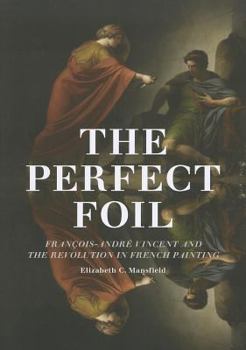The Perfect Foil: François-André Vincent and the Revolution in French Painting
Select Format
Select Condition 
Book Overview
Art history is haunted by the foil: the dark star whose diminished luster sets off another's brilliance. Relegated to this role by modern historians of Revolutionary-era French art, François-André Vincent (1746-1816) is chiefly viewed in the reflection of his contemporary, Jacques-Louis David. The Perfect Foil frees Vincent from this distorting mirror. Offering a nuanced and historically accurate account of Vincent's life and work, Elizabeth C. Mansfield reveals the artist's profound influence on the visual culture of the French Revolution--and, paradoxically, on the art historical narrative that would consign him to obscurity. The Vincent of The Perfect Foil is an artist whose life and work responded to cultural conditions--religious difference, emotional bonds, institutional pressures--only now finding their way into art historical accounts of the period. A successful academician despite his status as a member of the Protestant minority, a leading reformer of arts institutions during the Revolution, the progenitor of French Romanticism, and the husband of one of the period's most celebrated women artists, François-André Vincent emerges in these pages as an embodiment of the ambivalences and contradictions of life in France in the wake of the Enlightenment. By giving us a detailed and faithful portrait of this artist poised at the turning point of history, Mansfield restores a critically important body of work to its rightful place in the story of French art and reorients Revolutionary-era French art history toward a broader, more inclusive understanding of the period.
Format:Paperback
Language:English
ISBN:0816675813
ISBN13:9780816675814
Release Date:December 2011
Publisher:University of Minnesota Press
Length:320 Pages
Weight:1.60 lbs.
Dimensions:1.0" x 7.3" x 10.6"
Customer Reviews
0 rating





